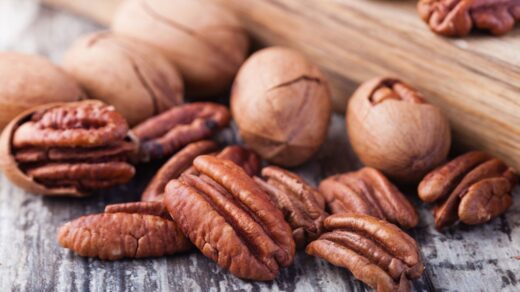Srotas: Understanding the Channels of Circulation in Ayurveda
One of the fundamental concepts of Ayurveda is the srotas system. This network of innumerable channels, both visible (like blood vessels) and invisible (like energy pathways), acts as the body’s internal transport system. The srotas are responsible for the circulation of essential nutrients throughout the body, delivering the building blocks for healthy tissues. 
They also play a vital role in eliminating waste products and ensuring the body’s proper detoxification. In Ayurveda, the proper functioning of the srotas is key to maintaining health, while blockages or imbalances in these channels can lead to disease. By nurturing the srotas, Ayurvedic practices aim to restore harmony and balance to the body’s natural rhythms.
This adds a bit more context and connects it to the broader idea of health and balance in Ayurveda
Maintaining Balance for Optimal Health
The proper functioning of the srotas is crucial for overall health. When the srotas become blocked or imbalanced, it hinders the efficient transport of nutrients and waste. This can lead to the accumulation of toxins, which in turn can manifest as various health issues in the short or long term.
Types of srotas
Ayurveda identifies three primary Srotas that directly connect the body to the external environment:
- Pranavaha Srotas (Air Channels): These channels are responsible for the flow of Prana, the vital life force. They govern respiration, ensuring the proper intake and exchange of oxygen and carbon dioxide.
- Annavaha Srotas (Digestive Channels): This Srota encompasses the entire digestive tract, from the mouth to the anus. It facilitates the breakdown and absorption of nutrients from food and liquids, while also eliminating waste products.
- Udakavaha Srotas (Water Channels): These channels manage the body’s water balance. They are responsible for the absorption, transport, and elimination of water throughout the body.
These three external Srotas play a critical role in maintaining our connection with the external world, allowing us to take in essential elements for life and release waste products.
Internal Srotas: Nourishing and Eliminating
Beyond the external Srotas, Ayurveda identifies several internal channels responsible for nourishing the body and eliminating waste:
1. Rasavaha Srotas (Nutrient Channels): These channels transport lymph fluid and plasma, carrying nutrients absorbed from the digestive system throughout the body. Overeating, heavy, cold, or oily foods, and even excessive mental strain can disrupt this Srota’s function.
2. Raktavaha Srotas (Blood Channels): These channels carry blood and hemoglobin, ensuring oxygen and nutrient delivery throughout the body. Alcohol consumption, spicy or fatty foods, and beverages can negatively impact this Srota.
3. Mamsavaha Srotas (Muscle Channels): These channels transport nutrients for muscle growth and remove waste products. Sleeping right after meals, overeating, and excessive dairy or flour intake can imbalance this Srota.
4. Medovaha Srotas (Fatty Tissue Channels): These channels manage the distribution and elimination of fat. Excessive alcohol consumption or daytime sleep can disrupt their function.
5. Asthivaha Srotas (Bone Channels): These channels carry nutrients for bone health. Factors like strenuous exercise, malnutrition, and insufficient sleep can affect these Srotas.
6. Majjavaha Srotas (Bone Marrow, Nerve, and Brain Channels): These channels nourish the bone marrow, nerves, and brain. Avoiding tight clothing and shoes, and maintaining a balanced diet are important for their health. Bone injuries can also negatively impact this Srota.
7. Sukravaha Srotas (Reproductive Channels): These channels transport sperm, ova, and the nutrients needed for their production. Excessive sexual activity or suppressing ejaculation can disrupt this Srota’s balance.
By understanding these internal Srotas and the factors that influence them, we can make conscious lifestyle choices to promote their optimal function and overall well-being.
Eliminatory Srotas: Maintaining Balance for Detoxification
Our body not only needs to absorb nutrients but also eliminate waste products. Ayurveda recognizes several Srotas dedicated to this crucial function:
- Purishavaha Srotas (Bowel Channels): These channels manage the elimination of feces through the bowels. Suppressing the natural urge to defecate and overeating can disrupt their proper function.
- Mutravaha Srotas (Urinary Channels): These channels are responsible for the elimination of urine through the bladder. Holding urine or engaging in sexual activity while needing to urinate can negatively affect this Srota.
- Svedavaha Srotas (Sweat Channels): These channels facilitate the elimination of waste products and excess heat through sweat. Excessive physical exertion, extreme heat exposure, and strong emotions like anger, pain, and fear can imbalance this Srota.
Manovaha Srotas: The Channel of the Mind
In addition to physical waste elimination, Ayurveda acknowledges the importance of mental and emotional well-being. The Manovaha Srotas is the channel through which thoughts, ideas, and emotions flow.
Chronic stress, worry, overwork, anxiety, anger, insomnia, substance abuse, and head injuries can all disrupt this vital channel.
Unique Srotas in Women
The Srotas system encompasses channels common to both men and women. However, women have two additional Srotas specific to their reproductive functions:
- Artavavaha Srota (Menstrual Channels): These channels are responsible for the flow of menstrual blood, playing a vital role in women’s reproductive health.
- Stanyavaha Srotas (Breast Milk Channels): These channels facilitate the production and transportation of breast milk during lactation, nourishing newborns.
The Importance of Srotas in Ayurveda
Ayurvedic texts emphasize the fundamental role of Srotas. They are the foundation for all bodily processes, as no tissue formation or degeneration can occur without proper function.
These channels act as the body’s intricate transport network, ensuring the delivery of nutrients, the removal of waste, and the maintenance of overall health and well-being.
By understanding the Srotas and the factors influencing them, we can adopt a holistic approach to health. Through dietary practices, lifestyle modifications, and Ayurvedic therapies, we can promote the optimal function of these channels, fostering a state of balance and vitality.
FAQs about Srotas in Ayurveda
1. What are srotas in Ayurveda?
Srotas are channels or pathways in the body that circulate nutrients and waste products. They are essential for maintaining the body’s health and for various physiological functions.
2. How many types of srotas are there?
There are numerous types of srotas in the body. Some of the key ones include Pranavaha (respiratory channels), Annavaha (food channels), Udakavaha (water channels), Rasavaha (lymph and plasma channels), Raktavaha (blood channels), Mamsavaha (muscle channels), Medasvaha (adipose tissue channels), Asthivaha (bone channels), Maijavaha (bone marrow, nerve, and brain channels), Sukravaha (reproductive channels), Purishavaha (feces channels), Mutravaha (urine channels), Svedavaha (sweat channels), and Manovaha (mental channels).
3. What happens if srotas are blocked or not functioning properly?
If srotas are blocked or not functioning correctly, it can lead to various health issues. The body may fail to absorb nutrients effectively or eliminate waste products, resulting in diseases and other health problems.
4. How can I maintain the health of my srotas?
Maintaining the health of your srotas involves a balanced diet, regular exercise, proper hydration, adequate sleep, and avoiding activities that disrupt the balance of these channels, such as overeating, excessive alcohol consumption, and suppressing natural urges.
5. Can srotas become unbalanced?
Yes, srotas can become unbalanced due to various factors such as poor diet, stress, lack of exercise, excessive physical exertion, and unhealthy lifestyle habits. Each type of srota has specific factors that can cause imbalance.
6. What are Pranavaha Srotas?
Pranavaha Srotas are channels responsible for breathing. They carry prana (life force) throughout the body, ensuring proper oxygenation and respiration.
7. What are Annavaha Srotas?
Annavaha Srotas are channels that carry food and liquids. They play a crucial role in the digestion and assimilation of nutrients.
8. What are Rasavaha Srotas?
Rasavaha Srotas are responsible for conducting lymph and plasma. They ensure the transportation of essential nutrients and immune factors throughout the body.
9.How can I balance Raktavaha Srotas?
To balance Raktavaha Srotas, avoid excessive alcohol intake, spicy and fatty foods, and maintain a diet that supports healthy blood circulation. Regular exercise and stress management are also important.
10. What are the special srotas in women?
Women have two additional srotas: Artavavaha Srota, responsible for transporting menstruation, and Stanyavaha Srotas, which function during breastfeeding to carry breast milk.
11. Can stress affect the srotas?
Yes, stress can significantly impact the srotas, particularly the Manovaha Srotas, which transport thoughts, ideas, impressions, and emotions. Chronic stress can lead to imbalances in these channels, affecting overall mental and physical health.
12. How does Ayurveda view the importance of srotas?
Ayurveda views srotas as fundamental to health and well-being. Proper functioning of srotas ensures the body can effectively nourish tissues, remove waste, and maintain overall balance. Any disruption in the srotas can lead to disease and health issues.

























